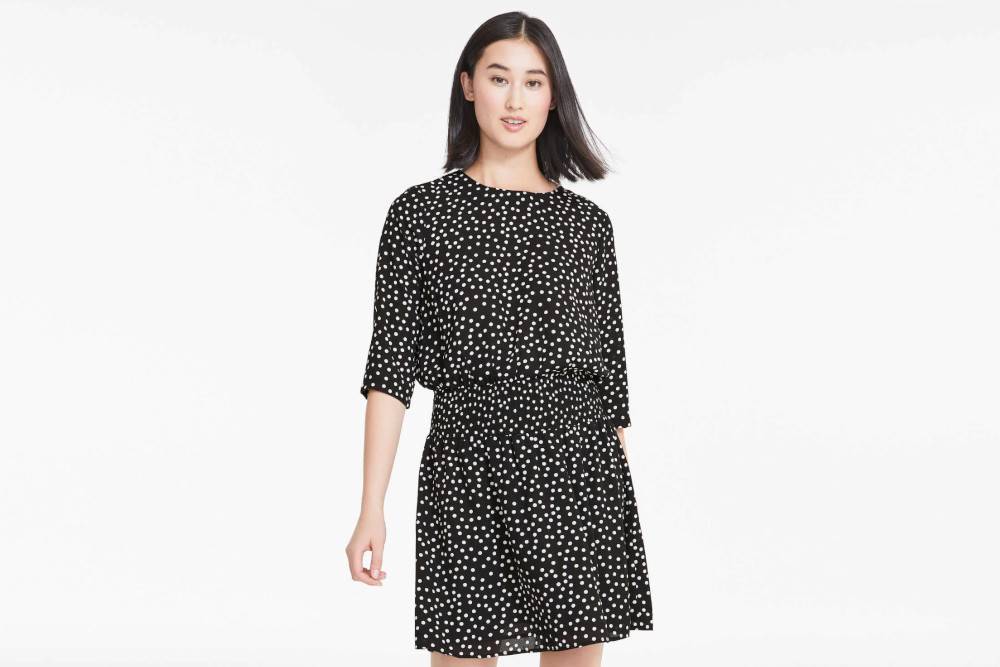
Joe Fresh is a Canadian fashion retailer founded in 2006 in Toronto, Canada, by designer Joe Mimran. The clothing-retail company creates casual fashion for men, women, and children.
Joe Fresh makes clothing, accessories, shoes, and swimwear. Canadian food distributor, Loblaw Companies Limited, owns Joe Fresh, along with other brands in the fashion and beauty sector.
Joe Fresh makes self-expression achievable with affordable fashion. It operates 1,450 stores and is one of Canada's leading fashion retailers. It also does business in the United States.
Joe Fresh creates positive environmental and social change by reducing the impact of its operations on the environment and improving its approach to waste management, packaging, energy use, and more.
Panaprium is independent and reader supported. If you buy something through our link, we may earn a commission. If you can, please support us on a monthly basis. It takes less than a minute to set up, and you will be making a big impact every single month. Thank you!
Sustainability Rating: 3/10
Rating FAQ
Category: Clothing, accessories, shoes
For: Women, men, children
Type: Basics, denim, dresses, knitwear, activewear, underwear, loungewear, swimwear, outerwear, nightwear, sneakers, boots, heels
Style: Casual
Quality: Low
Prices: $
Sizes: 2XS-3XL, 0-24 (US), 2-26 (UK), 32-54 (EU), 2-26 (AU), plus
Fabrics: Cotton, linen, modal, viscose, polyester, nylon, spandex, acrylic, neoprene, polyurethane, rubber, leather, wool, silk
100% Organic: No
100% Vegan: No
Ethical & Fair: No
Recycling: Yes
Producing countries: Bangladesh, Cambodia, China, India, Pakistan, Thailand, Vietnam
Certifications: no certification
Sustainability Practices
Joe Fresh takes wide-ranging measures to protect biodiversity, reduce its consumption of water, energy, and other resources, avoid waste, and combat climate change.
It wants to be better and more efficient by looking at every aspect of its value chain to ensure the healthy functioning of our planet. However, the majority of its business remains detrimental to the environment.
Joe Fresh only uses a tiny proportion of organic materials, such as organic cotton, or recycled materials, such as recycled polyester and regenerated nylon.
Most of the fabrics it uses are either natural without relevant certifications, such as regular cotton or linen, or synthetic petroleum-based fibers, such as polyester, nylon, acrylic, and more.
Joe Fresh also uses a small proportion of semi-synthetic fibers or regenerated cellulosic fabrics such as modal and viscose.
Joe Fresh publishes a list of all its manufacturers on its corporate website, Loblaw.ca. It aims to improve safety and transparency within its international supply chain.
Joe Fresh works with leading international apparel brands, non-governmental agencies, and labor groups to improve working conditions for millions of garment workers globally.
The 2022 Fashion Transparency Index gave Joe Fresh a score of only 18% based on how much the group discloses about its social and environmental policies, practices, and impacts.
Joe Fresh manufactures its clothes in many East Asian countries, where human rights and labor law violations happen every day.
The Canadian clothing retailer doesn't show any labor certification standard that would ensure good working conditions, decent living wages, health, safety, and other crucial rights for workers in its supply chain.
Joe Fresh has a code of conduct that applies to all its suppliers and subcontractors to provide standards on protecting human rights, adhering to applicable employment standards and providing safe working conditions for workers.
Joe Fresh assesses compliance with its Code of Conduct by informal visits or third-party audits with or without notice. It works with third-party experts to conduct compliance audits using a best-practice audit framework.
Joe Fresh doesn't use exotic animal skin, hair, fur, or angora. But it uses leather, wool, and silk to manufacture many of its clothing pieces.
These animal-derived materials are cruel and unethical. They also harm the environment by producing greenhouse gases and waste. More sustainable alternatives exist.
Sustainability Goals
Joe Fresh has committed to reducing its environmental impact across the entire supply chain. It has a responsibility to make a positive impact on the communities it serves.
Joe Fresh plans to reduce its enterprise-wide operational carbon footprint by 50% by 2030, against a 2020 baseline. It will achieve net-zero emissions by 2040 for its enterprise Scope 1 and Scope 2 emissions and Scope 3 by 2050.
Joe Fresh will also reduce plastic waste by making all control-brand and in-store packaging recyclable or reusable by 2025.
Joe Fresh plans to send zero food to landfill by 2030, and over the next 24 months achieve measurable food waste reductions in every one of its stores.
Joe Fresh has committed to convert 100% of its Joe Fresh cotton-rich direct programs to sustainable cotton by 2025.
Buy Here
Discover Joe Fresh's sustainable collections at JoeFresh.com.
Reviews And Experiences With Joe Fresh
Have you had (good) experiences with shopping at or the products of Joe Fresh? Then leave us your rating below.
What We're Up Against
Multinational corporations overproducing cheap products in the poorest countries.
Huge factories with sweatshop-like conditions underpaying workers.
Media conglomerates promoting unethical, unsustainable products.
Bad actors encouraging overconsumption through oblivious behavior.
- - - -
Thankfully, we've got our supporters, including you.
Panaprium is funded by readers like you who want to join us in our mission to make the world entirely sustainable.
If you can, please support us on a monthly basis. It takes less than a minute to set up, and you will be making a big impact every single month. Thank you.































0 comments